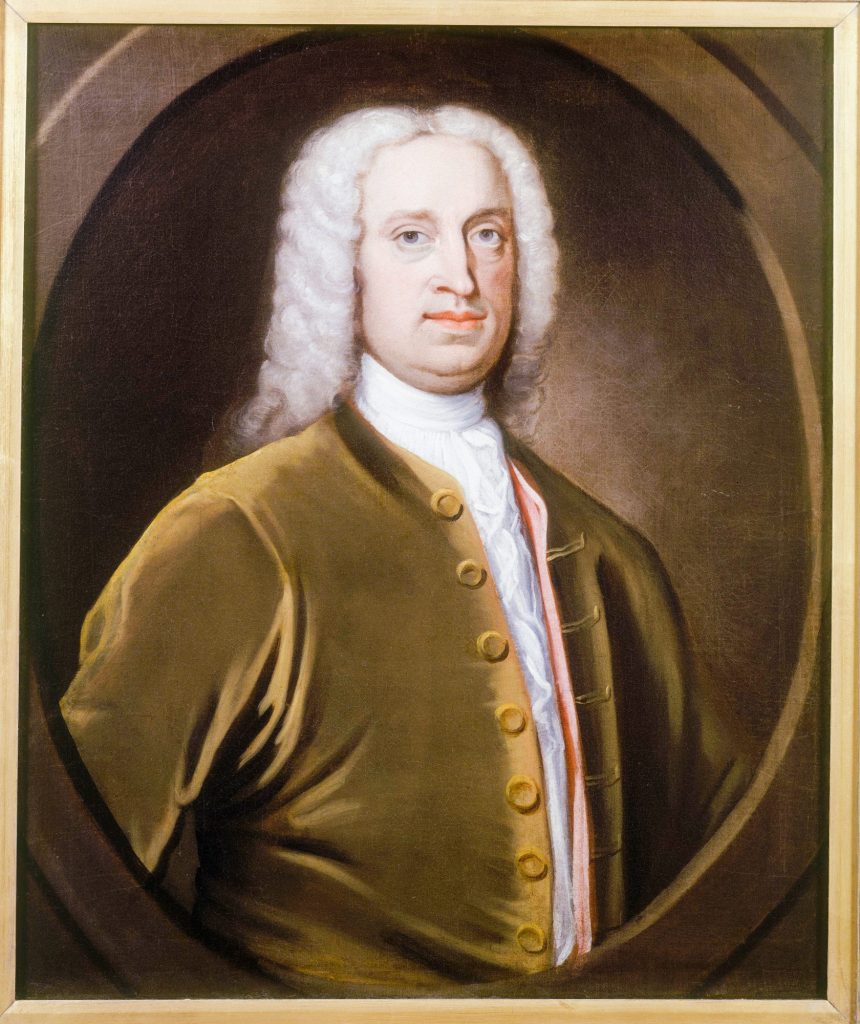Born in London, Judah was the oldest of three children of German parents Sampson and Joy Tabitha Franks Mears. His father and his uncle Jacob developed an active stake in the Caribbean trade, shipping between Jamaica and London. Judah followed his father into business, selling North American produce to West Indian sugar planters.
In 1718 Judah’s sister Grace married New York shipping magnate and widower Moses Raphael Levy and returned with him to begin a life in the colonies. Mears’ new brother-in-law was one of colonial America’s most prosperous Jews, and some time after the wedding he joined his sister in New York. Mears formed a partnership with merchant Jacob Franks, who was married to Levy’s daughter Abigail. Theirs proved a successful alliance, and Mears eventually acquired properties in Manhattan and Long Island.
In the early 1730s Mears married Jochabed Michaels. Joachabed was the daughter of Moses and Catherine Michaels who, like the Mearses, were German Jews engaged in trade in the West Indies. Their first of seven children, Catherine, was born in 1735 or 36. A few later, on May 30, 1738, Mears became a freeman of New York. While this meant that he now enjoyed full economic and political rights, his new status also brought with it additional responsibilities. In 1741 Mears was elected constable of New York’s East Ward, a position widely considered a burden, and one which those who could afford to generally opted out of with the payment of a fine. Mears, however, served his term as constable, during which service he fell victim to an attack by Oliver DeLancey. A wild and notorious figure from one of New York’s most prominent Dutch Protestant families, DeLancey had recently wed, in a secret ceremony, Moses Levy’s granddaughter, Phila Franks.
Mears played an active role in congregation Shearith Israel, serving as parnas in 1741. He also survives in the synagogues records through a minor controversy from 1760, in which Mears entered the cramped women’s section on Sabbath to reclaim a seat he believed to have been taken from his daughter. The infraction resulted in a 40 shilling fine “in order to prevent for the future any persons assuming to themselves the authority of determining the property of seats in the Sinagogue…”
In 1762 he died while traveling in the Caribbean, most likely on business.
